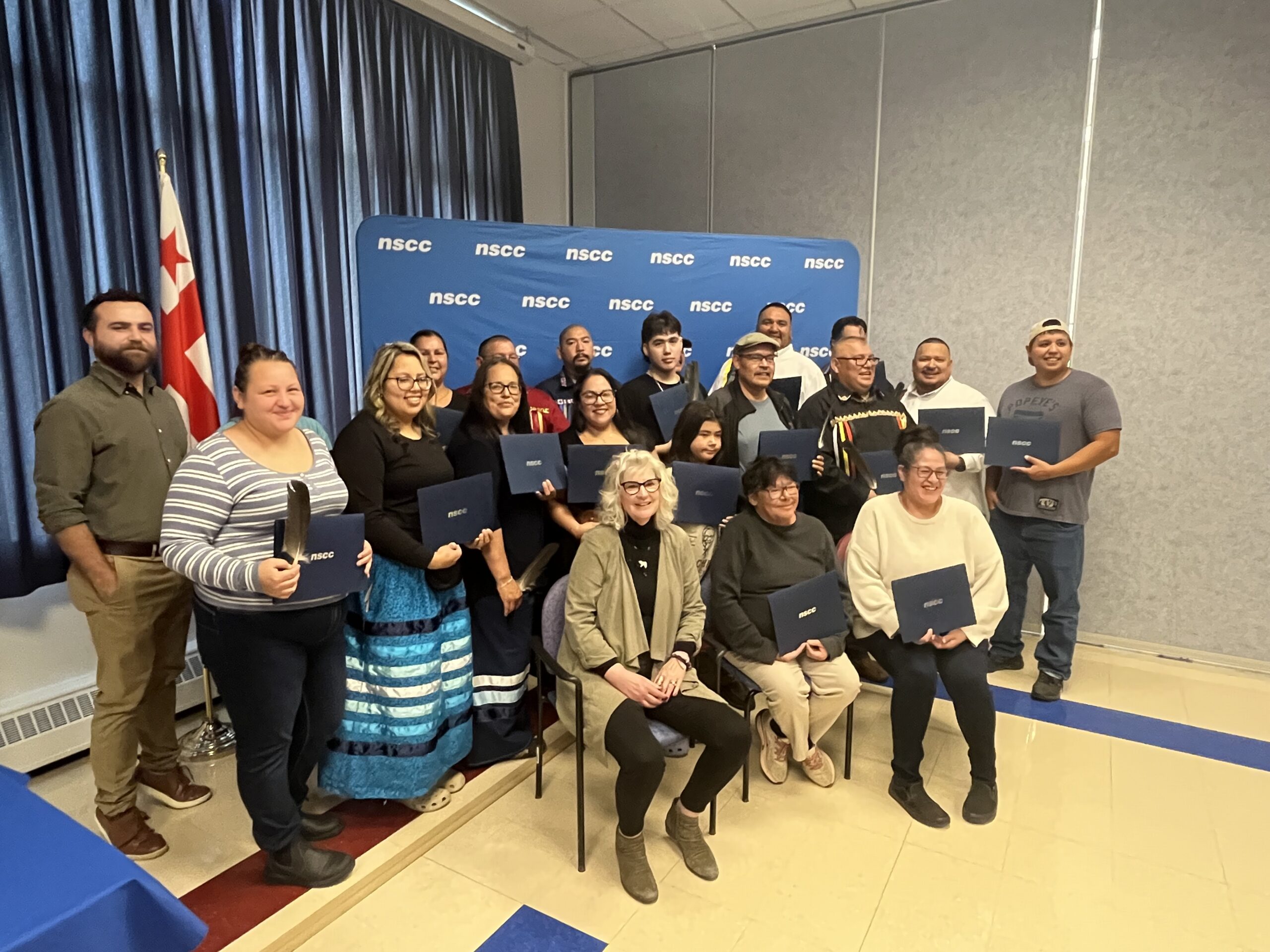Congrats to the Fourth Emergency Management Cohort!

It was with applause, accolades and gratitude from all around that the fourth cohort graduates from the NSCC Emergency Management Program accepted their diplomas.
Twenty-one First Nations cohort graduates are now equipped with the technical knowledge to serve their communities during emergency situations.
“I think it was an amazing program. I did know a lot of things prior to this, from experience working with emergency management operations, but being able to come together with people from different communities…that was pretty amazing, because you just learn different things,” said Keora Doucette, a graduate from Elsipogtog, shortly after receiving her diploma.
She added, “You pretty much just learn from each other as well. The other thing is that the teacher is amazing. Without her, maybe some of us wouldn’t even be graduating. You know, she was very helpful, she was very with us. Just being able to come here to Truro is an adventure itself. So, I think this program should continue because a lot of people can learn from it.”
To date, the Emergency Management Program has had 50 successful graduates from 15 First Nations across Atlantic Canada.
Accolades
The graduates were praised by everyone involved in the Emergency Management Program, including their instructor Heather Mackenzie-Carey, who said she learned much, teaching this cohort.
“Each of the four classes has been different. Your group was the most diverse that came here,” she said, noting that some graduates enrolled in the course with first responder backgrounds, with a variety of skillsets, bringing in-community skills and competencies to the classroom, earned from prior experience.
Scott MacDonnell, Emergency Management Program Manager with Confederacy of Mainland Mi’kmaq (CMM), whose work with several partners, including NSCC, launched the program, congratulated the graduates on the perseverance and sense of purpose evident in their work.
“You’re all working in a realm that demands courage, clarity and compassion, qualities your communities have carried and passed down over generations,” he said, addressing graduates and a packed Salon-C at the Truro Campus, during the Oct 22 graduation ceremony.
“You have chosen to protect, prepare and lead, not just in times of crisis, but in building resilience long before an emergency event happens. You bring with you not only the technical skills and training, but a worldview rooted in balance, respect and collective care; a perspective the field of emergency management and the world at large urgently need right now.
“You are part of a growing wave of Indigenous communities shaping the future of emergency management in not just this region, but across the whole country.”
MacDonnell stressed that their efforts won’t just help manage emergencies, they will transform the systems that create vulnerabilities in communities, to begin with. He also acknowledged that they put in long hard hours into the program, with many having travelled long distances to attend classes in Truro.
This year’s cohort included grads from across Atlantic Canada, from Eskasoni to Wasoqopa’q in Nova Scotia, and some students from as far away as New Brunswick and Labrador.
NSCC Truro Principal Lech Krzywonos congratulated the grads, stressing the importance of their work to come as emergency management professionals.
He said, “You’re going to be helping people, potentially at their most vulnerable, experiencing and you’re going to minimize those impacts.”
Graduates
The fourth graduate cohort of the NSCC Emergency Management Program includes:
- Aaron “Tjitj” Augustine
- Carol Marshall
- Dallas Gould
- Douglas Ashini
- Faye Sylliboy
- Flora Levi
- Georgina Gehue
- Harley Jay Francis
- Hunter Levi
- Jacob Augustine Sock
- Jamie Lee Gehue
- Jeanette Nickerson
- Jerron Hawley
- Julian Paul
- Keora Doucette
- Keyona Milliea
- Mark Augustine
- Mark Peters
- Michelle Lantz
- Noel Kimball Augustine
- Stanford Phillips
